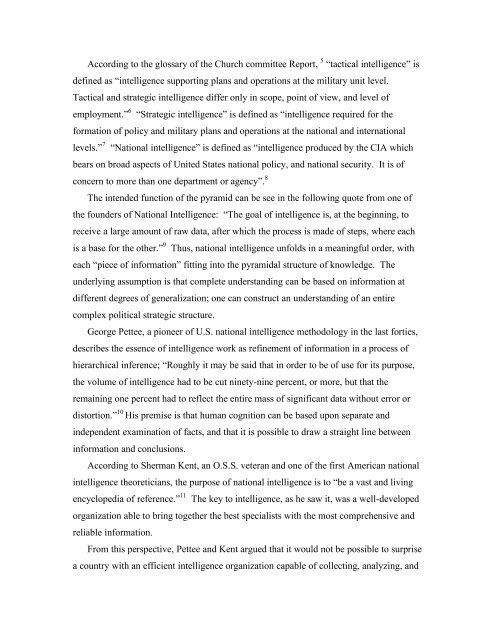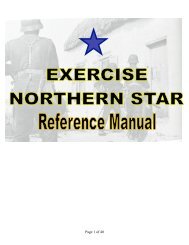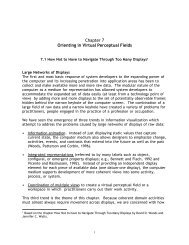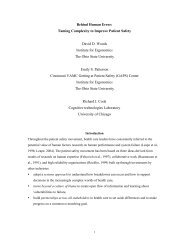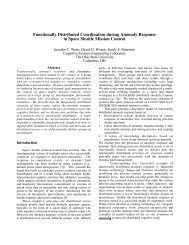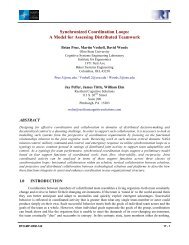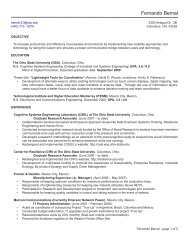Fundamental Surprises Zvi Lanir Decision Research 1201 Oak ...
Fundamental Surprises Zvi Lanir Decision Research 1201 Oak ...
Fundamental Surprises Zvi Lanir Decision Research 1201 Oak ...
- No tags were found...
You also want an ePaper? Increase the reach of your titles
YUMPU automatically turns print PDFs into web optimized ePapers that Google loves.
According to the glossary of the Church committee Report, 5 “tactical intelligence” is<br />
defined as “intelligence supporting plans and operations at the military unit level.<br />
Tactical and strategic intelligence differ only in scope, point of view, and level of<br />
employment.” 6 “Strategic intelligence” is defined as “intelligence required for the<br />
formation of policy and military plans and operations at the national and international<br />
levels.” 7 “National intelligence” is defined as “intelligence produced by the CIA which<br />
bears on broad aspects of United States national policy, and national security. It is of<br />
concern to more than one department or agency”. 8<br />
The intended function of the pyramid can be see in the following quote from one of<br />
the founders of National Intelligence: “The goal of intelligence is, at the beginning, to<br />
receive a large amount of raw data, after which the process is made of steps, where each<br />
is a base for the other.” 9 Thus, national intelligence unfolds in a meaningful order, with<br />
each “piece of information” fitting into the pyramidal structure of knowledge. The<br />
underlying assumption is that complete understanding can be based on information at<br />
different degrees of generalization; one can construct an understanding of an entire<br />
complex political strategic structure.<br />
George Pettee, a pioneer of U.S. national intelligence methodology in the last forties,<br />
describes the essence of intelligence work as refinement of information in a process of<br />
hierarchical inference; “Roughly it may be said that in order to be of use for its purpose,<br />
the volume of intelligence had to be cut ninety-nine percent, or more, but that the<br />
remaining one percent had to reflect the entire mass of significant data without error or<br />
distortion.” 10 His premise is that human cognition can be based upon separate and<br />
independent examination of facts, and that it is possible to draw a straight line between<br />
information and conclusions.<br />
According to Sherman Kent, an O.S.S. veteran and one of the first American national<br />
intelligence theoreticians, the purpose of national intelligence is to “be a vast and living<br />
encyclopedia of reference.” 11 The key to intelligence, as he saw it, was a well-developed<br />
organization able to bring together the best specialists with the most comprehensive and<br />
reliable information.<br />
From this perspective, Pettee and Kent argued that it would not be possible to surprise<br />
a country with an efficient intelligence organization capable of collecting, analyzing, and


